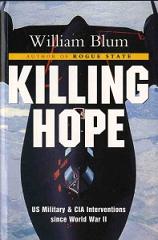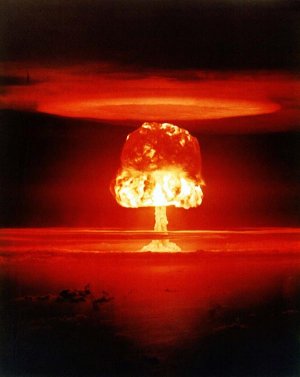Are the Iranian protests just another colour revolution:
You see, it looks very much like a “color revolution” scenario: the US-favored candidate contests election results, claims victory, and his supporters riot till the government caves in. But then, couldn’t the incumbent actually steal the election knowing full well that he can paint the resulting opposition protests as a CIA/NED coup attempt, whether that is actually true or not?
Only a fool would rule out US meddling in Iran, but that does not remove the genuine grievances of the protestors. These protests would not have as much support as they do if there weren’t hundreds of thousands or even millions of people feeling that the elections were stolen, whether or not they were. Iranian elections may have been reasonably fair in the past, but there has been a history of government meddling in the past, through e.g. pre-election selection of “acceptable” candidates, that the idea of a much more blatant vote rigging is clearly not absurd to a large part of the Iranian electorate. That still doesn’t mean vote rigging has happened, no matter what Juan Cole believes, but it is a distinct possibility.
A colour revolution is a mock revolution, where the genuine wish for change on part of a given country’s population is channeled into a safe, US and EU approved direction. It works best against an autocratic but not dictatorial regime, which may be comfortable with busting heads and the occasional disappearance of an opposition member, but which still seeks the apparant approval of the population and which isn’t too bright or media savy. In contrast the opposition will be young and media friendly, aiming their campaign as much at western journalists as at their own people. They will have American money and American advisers to help the campaign and it will be put in media friendly terms, presented as a fight between reformists and conservatives, young vs old, Coke vs Pepsi. It’s fake, but driven by a genuine desire and although leftists should not be fooled by them, there’s still the need to engage that underlying wish. (In as far as we can do something, of course.)
On the one hand, you can’t just uncritically support the opposition as many liberals and conservatives are doing, as exchanging Ahmadinajad for Mousavi is like driving the devil out with Beelzebub. This is not a case of freedom versus oppression and anybody who believes it is will be disappointed, both in and outside Iran.
On the other hand, ignoring the situation won’t make it go away. A large part of the Iranian population wants more personal freedom, wants to have at least some of the things we take for granted in America or the EU, how horribly consumerist they and how horribly middleclass the protestors might be. We need to make sure that when we are critical of how our media reports about these events or about how liberal Mousavi actually is, that we don’t throw away the baby with the bathwater. Iran is an oppresive regime and that needs changing and it’s the Iranian people that need to do it. We can only stand on the sidelines and argue our own (imperfect) understanding of the situation; we shouldn’t presume too much that we can actually give any meaningful advice.
But what we can do is push back against too triumphalistic a view of this revolution, the idea that this is a vindication for truth, justice and the American way, as long as we do it without denigrating the genuine desires of the Iranians themselves.

